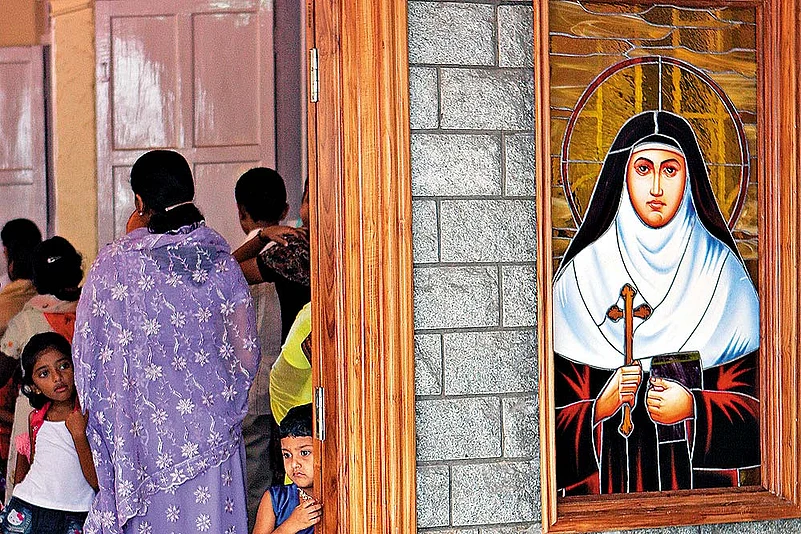Christians in Kerala have been a flourishing community for about 2,000 years (if you believe the strong oral tradition about Jesus’s disciple Thomas arriving in Muziris in 52 AD and converting prominent local families, at least 12 of whose house names or surnames are still remembered) or about 1,800 years (if you go by historical record alone, which mentions Pantaenus, a leading theologian of Alexandria, visiting Kerala on the invitation of a community of Christians there, around 190 AD.)
The Kerala Christians followed the teachings of Christ, but since they were cut off from regular contact with Christian communities elsewhere, they maintained their own independent traditions and managed their own religious affairs. At some point, they began having intermittent but intimate contact with other Christian communities in what is today Iran, Iraq and Syria, probably as a result of the first Christian refugees who came from there, fleeing the persecution of the Sassanian emperor, Shapur II. These refugees and the churches in their homelands belonged to the Orthodox tradition, not the Church of Rome.
We don’t know how actively these Kerala Christians proselytised but we do know they were fully integrated into the local society; were regarded highly by the kings who gave them special privileges in return for their military and trade-related services; and that their ranks grew by further infusion of new Christian refugees from West Asia, fleeing Mohammedan persecution.
The arrival of Portuguese explorer Vasco da Gama in Kozhikode in 1498 marked a turning point, not just for Kerala’s Christians but for Christianity in India itself. In time, the Portuguese who were Catholics wanted to bring the Kerala Christians under their control, and used threat and violence. That resulted in one of the earliest popular revolts against Europeans on Indian soil. On January 3, 1653, thousands of Christians in Kerala took an oath by the cross at Mattancherry that they would not submit themselves to the Portuguese. The community, however, split later on, with one section making a compromise with the Portuguese and the Catholic Church, and others sticking by their oath.


























